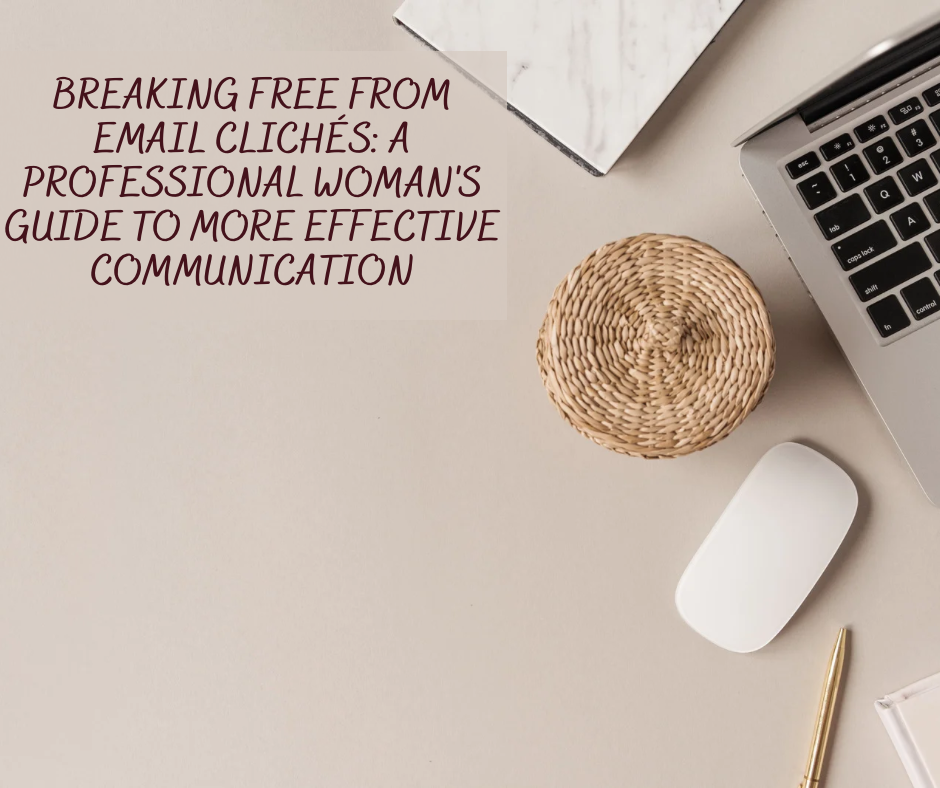In today’s fast-paced business world, we’re all guilty of falling back on familiar email phrases. But as professional women striving for clarity and impact in our communication, it’s time to refresh our email vocabulary and make every message count and watch our email clichés
Breaking Free from Email Clichés: A Professional Woman’s Guide to More Effective Communication

Common Email Phrases to Reconsider
Let’s examine some overused phrases that might be diminishing our professional impact:
- “Hope this email finds you well” – While polite, this opener has become so common it often goes unnoticed. Instead, try a more personalized greeting or dive straight into your message with purpose.
- “Just checking in” – This passive phrase can make us appear uncertain. Be confident! Try “I’d like an update on…” or “What’s the status of…”
- “As per my last email” – Though tempting when frustrated, this passive-aggressive phrase can damage professional relationships. Consider “To follow up on our previous discussion…”
- “Circle back” – Instead of this overused term, be specific about your next steps: “I’ll review this with you on [date]” or “Let’s discuss this at our next meeting.”
Power Phrases for Professional Women
Here are more effective alternatives that convey confidence and authority:
- Instead of “Sorry to bother you” – Use “Thank you for your time” or simply state your purpose clearly
- Replace “Just wanted to” – Remove ‘just’ and own your request: “I’m writing to discuss…”
- Swap “I think maybe” – With confident phrases like “I recommend” or “I suggest”
The Impact on Your Professional Brand
Your email communication is a reflection of your personal brand. By choosing stronger, more purposeful language, you’re not just writing better emails – you’re building a more powerful professional presence.
Quick Tips for More Effective Emails
- Be direct and specific in your subject lines
- State your purpose in the first sentence
- Use bullet points for multiple requests or information
- End with a clear call to action
Remember: Every email is an opportunity to showcase your professional expertise and leadership qualities. By eliminating these clichés, you’re not just improving your communication – you’re elevating your executive presence.
Moving Forward
Take a moment to review your sent emails and identify your own patterns. Which phrases could you upgrade? What language would better reflect your professional authority? Small changes in how we communicate can lead to significant improvements in how we’re perceived in the workplace.
Pro Tip: Create a personal “power phrases” document with stronger alternatives to your most commonly used email clichés. This will help you build new habits and maintain consistent, powerful communication.
